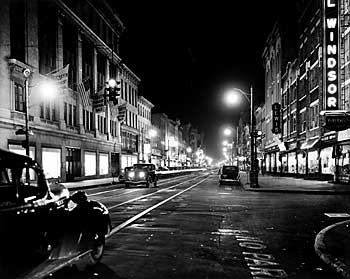(viremia)
sean? brijbasi
Beauty brings an end to all hope and as such perpetrates a decelerative force on existence. To say it differently, as we are inclined to do, if only for the reason that we can: our hopes end in beauty.
To term this force in such a manner is to give the reader a positive impression of beauty and to defend beauty from its truth.
Some say that beauty needs defending and that its truth lies not in its negative nature but elsewhere. To these people we say poppycoodle. As drumming is a prima facie form of gesticulation, the former being in and of itself the latter (note the paradox), the whole kitten caboodle of beauty relinquishes itself in its ultimate realization and reveals the cynical nature of its drive.
If we turn one eye to the Renaissance with its illusory hubbub we might see a harlequin dancing, a juggler of bread, a pope-stroking official of letters but…burble...here sits a wooden brawl with one mango and papaya, just as it sat so many centuries ago. It is no surprise then that the Renaissance can be considered the first phase of that oft over-used articulation known as movement. And this movement is at once the beginning and the end of itself, for there can be no end without burble [hyphen] burble.
Lament, denial, destiny...
Despite the metaphysical throat clearing of philosophers one easily finds the gist of what philosophers ultimately cough up. This gist itself is not important. What is important is that this gist is not sufficient to fill the tum tum of the little birdy it is intended to feed. Nor is it for that matter (cough) representative of a value-inducing praxis.
So, what to make of all manner of hindrance that approximates this decelerative force without actually becoming it?
For the answer, we turn our other eye to Gogol and his "festive pontoon" [i.e. orion’s nutmeg]. Gogol’s "festive pontoon", though seemingly explicit and denotative, once deconstructed invites further plumbing.
Hurtigruen gurty flimson…the…fa…la…twinkle
Stripped of its literary veneer, Gogol’s "festive pontoon" reveals a striking parallax. Astonishingly, hope, with its characteristic pu, c, pute, and e, is the poison that brings the patient to our attention.
Oh hope. Oh transcendent, mortifying castaway of our solopsy. Were it not a fright to be such plumbed, a good hearty plumbing t’would bon vivant licky.
With these words Gogol, justly or unjustly, destroyed the language of the bourgeoisie, and in so doing destroyed the settee of beauty’s lap dog. It becomes apparent, as appearance is the end all and be all of being, that beauty is the succorer of all evil in this world. For what is the death of hope if not evilness. And yet, hope itself is evilness. Vile. Venal. Vindictive. Vengeful. Venomous.
(viremia)
Beauty, undressed once and for all, cowered at the sight of Gogol’s sword and vanished with the language that spawned it.
Oh, only if it were so…
So what of this destruction? Why is the language of the bourgeoisie still babbled today long after Gogol’s resounding victory? The answer is as simple as it is cozy. The bourgeoisie’s methods of retaliation are brutal and irrevocable (note the awful manner in which the Italians are treated) and include co-option and disregard. With co-option victory for the likes of Gogol is unattainable.
"Bon vivant licky licky", mobli.
"hamaji corn plutefar."
For Gogol, who stripped beauty down to its asshole, disregard for the destruction he inflicted restored beauty and hope as the centerpieces of the holy-shit-not-that-shit-again-claptrap-hey-I-wanna-hear-it-all-again-in-the-only-way-I-know-how bullshit {Ethiopian, Etruscan, and Coptic wheat snack}.
This gestural dismissal of the destruction is evidence that the importance of the "festive pontoon" is not found in its answer to the age-old question, but the way in which this answer reinvents the question.
Beauty, a hobknob, gestural in its connotation, soothier, darker, and more insinuating.
However, despite the bourgeoisie’s seemingly effective disregard, what we find in "the festive pontoon" is the victory of a single mind over all of mankind. Unnoticed, sad, a little plump, and possibly squirmy.


